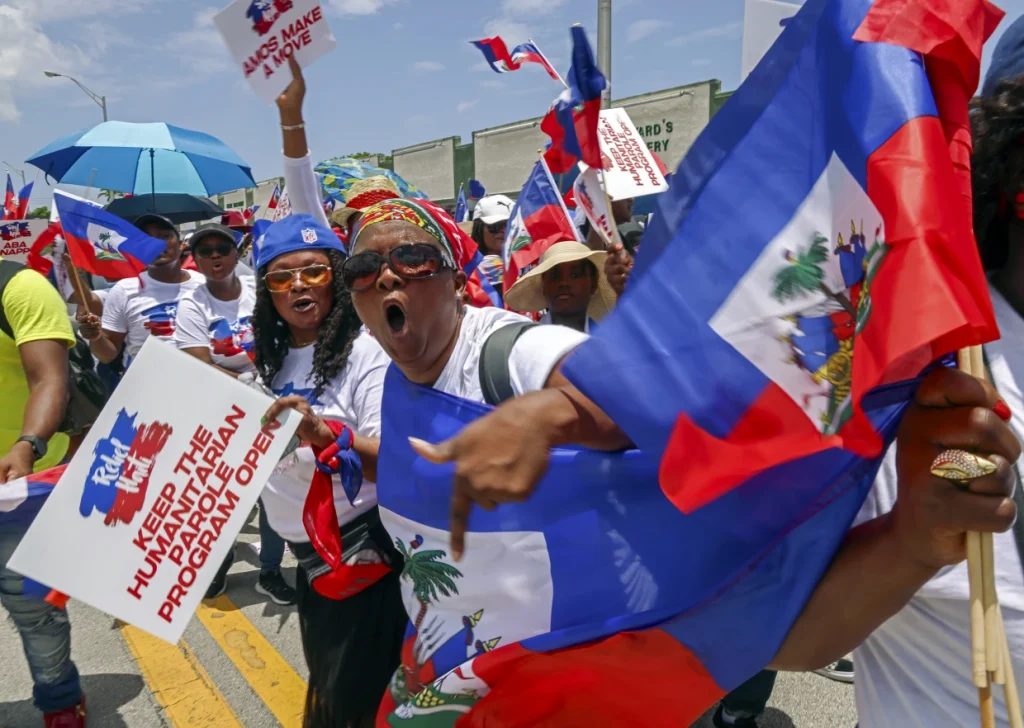On Thursday, April 10, all eyes turn to Massachusetts as U.S. District Judge Indira Talwani presides over a high-stakes hearing that could determine the future of humanitarian parole programs affecting over 875,000 migrants, including a large population of Haitian nationals.
At the center of the case is the Haitian Bridge Alliance, alongside plaintiffs from Haiti, Nicaragua, Venezuela, Afghanistan, El Salvador, Cuba, Ukraine, Honduras, and the United States, challenging the Trump administration’s decision to abruptly end the CHNV parole programs—also referred to as “The Biden Program.” These programs granted two-year legal stays and work permits to individuals fleeing violence, instability, and persecution, including more than 532,000 Cubans, Haitians, Nicaraguans, and Venezuelans (CHNV).
The plaintiffs, represented by legal teams from Justice Action Center and Human Rights First, argue that the termination—set to take effect on April 24—is a “racist effort to eliminate protections” and are seeking an emergency injunction to block the change. They warn the rollback could lead to mass deportations of vulnerable families, particularly in light of Haiti’s deepening political and humanitarian crisis.
The case follows a Federal Register Notice issued on March 25, 2025, where the Department of Homeland Security, under Trump’s leadership, announced the official termination of the CHNV programs. The notice claimed the programs do not offer a “significant public benefit” and are inconsistent with current immigration policies.
For Haitians—many of whom fled the country after the assassination of President Jovenel Moïse and amid growing gang violence, economic collapse, and social unrest—the CHNV program represented a critical lifeline. The plaintiffs argue the rollback violates the Administrative Procedure Act by bypassing required public comment and rulemaking, and also infringes on Fifth Amendment due process rights.
During a preliminary hearing earlier this week, Judge Talwani pressed the government’s assertion that her ruling should only apply to named plaintiffs. Her pointed questions signaled an openness to issuing broader relief—a potentially transformative move for hundreds of thousands of immigrant families.
With the Temporary Protected Status (TPS) for Haitians also set to expire on August 3, Thursday’s hearing comes at a critical moment. If the CHNV program is dismantled without alternative protections, families will be exposed to imminent deportation to unsafe and volatile conditions.
The Haitian Bridge Alliance urges supporters to join them in solidarity:
“Join us in court Thursday. Haitian lives are at stake.”
Written by: L’Union Suite Team
Credit: @HaitianBridge @JusticeActionCenter @HumanRightsFirst @DHSgov @uscourts
































Add Comment